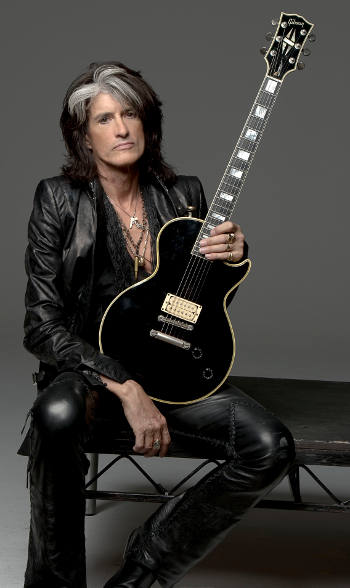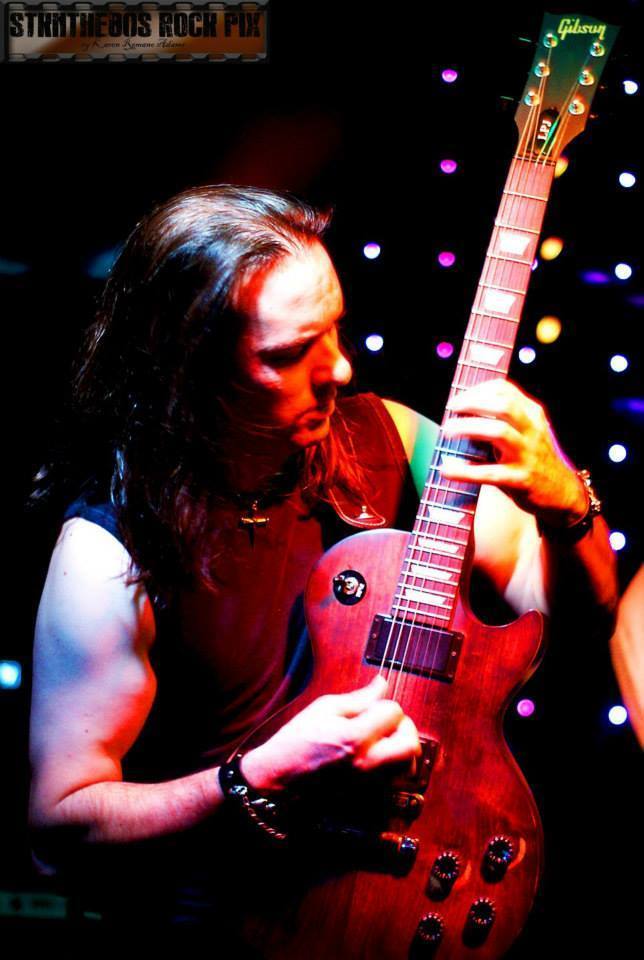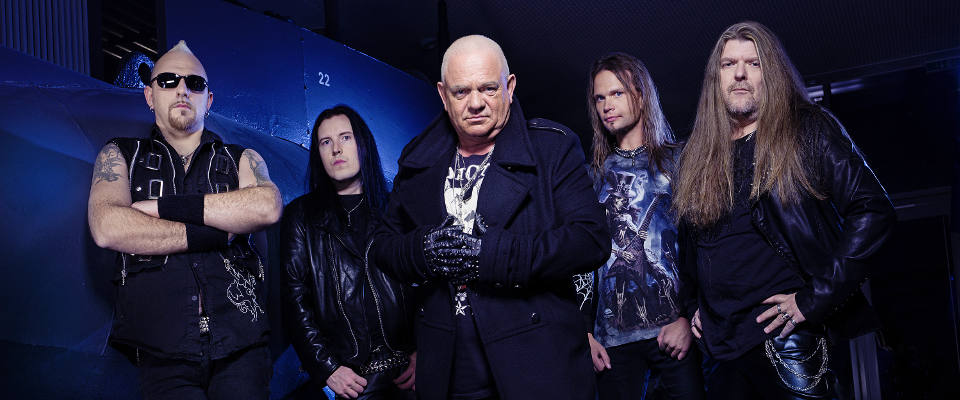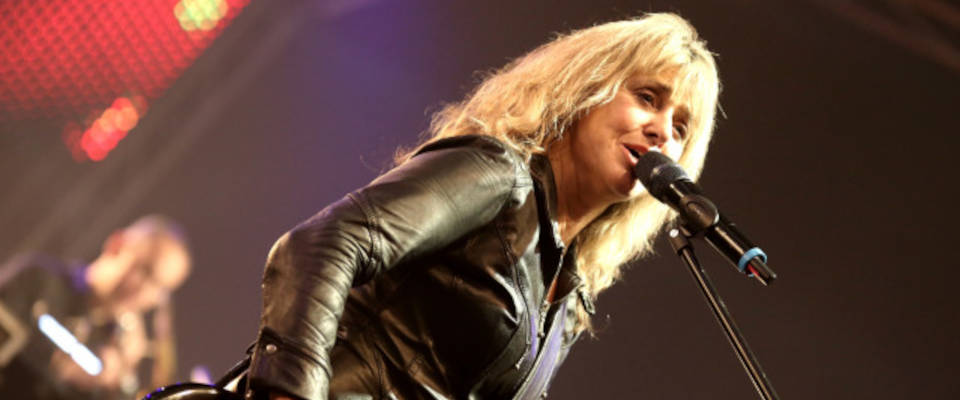 HRH: Hello!
HRH: Hello!
Joe: Hello Steve?
HRH: Hey, is this Joe?
Joe: Yeah.
HRH: Hey, how are you doing?!
Joe: I’m doing good. How are you?
HRH: I’m doing just great. Well hey, congratulations on a fantastic book.
Joe: Thank you. Thank you very much.
HRH: How did you even begin the process of writing this?
Joe: Well, um, back when I was 12 I got a guitar in the mail from Sears & Roebuck and that’s when it started. Seriously, the thought of writing a book I probably had at some point lik e… I don’t know … maybe 10 years ago … whatever. But I just didn’t feel like it was time, but this year … well actually it was 3 years ago that we moved out here to L.A. and we were working on the last Aerosmith record … and my wife and I were talking and she asked, “What do you think about getting into a book now?” And it felt right with the 40th anniversary of the band on the public level and privately all my kids had graduated from college. The youngest graduated from BU, so dynamically our family was going through changes and it felt like it was time. It felt okay putting some of this out there and letting it fly, you know? That was it and then we started the process.
HRH: Well the memoir is called Rocks and that’s my favorite Aerosmith album.
Joe: Thanks.
HRH: What was it about that title that stuck out to you and how does it sum up the book?
Joe: It’s funny but it was like one of the first titles that … and I think that the second half, My Life In and Out of Aerosmith, it had a different phrase in there and we changed that and then we just left it like that. It was kind of weird because usually you spend weeks trying to name an album and it was really unusual to come up with a title that was so appropriate especially since I remember naming that record Rocks was something that I … I can remember for sure that that was one of mine and the five diamonds on the front and the whole thing. So it was the right one and it just kinda stayed with every time we’d get a galley or a working version of the book it would have “Rocks: My Life In and Out of Aerosmith” and it just fit. After getting over the fact that it came kind of easy, it just worked and I still think it does because it does tie in with that record that I think was … that era was one of our most creative periods. It works for me and the book. Anyway, it just seems to work.
HRH: You’re in an enviable position where you were able to have met many of your musical heroes like Jimmy Page and Jeff Beck. Just thinking back to the part in your book where you describe seeing The Yardbirds in the movie Blow-Up for the first time and how important that was to you, have you ever shared that memory with them?
Joe: Uh, yeah. Actually I know I’ve mentioned it to Jimmy and probably to Jeff. You know, Jeff isn’t as talkative as Jimmy. He’s a different cat, you know, as you might imagine. Yeah I mentioned it to both of them and they said that they had to change the lyrics to the song because of the publishing or whatever … because it’s basically “Train Kept A Rollin’”. But just the sound of those two guitars. I mean, you know, two really amazing inventive guitar players. That was … I didn’t know it then, like I said in the book … but that was proto-Aerosmith, you know, without knowing it back then. It didn’t take much, I mean, to get inspired and to make an impression. And that shows because that stuck with me for my whole life. You know, I still get goose bumps when I hear that song.
HRH: Another huge influence of yours … and I’ve always appreciated that you’ve flown the flag for this incarnation of the band … is Peter Green’s Fleetwood Mac.
Joe: Right.
HRH: I mean, you’ve done versions of “Stop Messin’ ‘Round,” “Rattlesnake Shake,” and even “Somebody’s Gonna Get (Their Head Kicked in Tonight)” off your last solo record. Have you ever met Peter Green?
Joe: No I haven’t. He’s the one guy I have not met yet. I have not had the pleasure, you know. The few times he’s been out and around I haven’t. Whenever I’m in England I ask what he’s up to, what he’s doing, “Is he out?” Most of the time he’s not around, so I’ve never really had the chance to meet him unfortunately.
HRH: What was it about that band that really spoke to you? Obviously there’s a lot of proto-Aerosmith there too.
Joe: Well, they were very … they weren’t looking for any commercial success even though they had, you know, they obviously knew the value of it. It was a time when, you know, Jimi Hendrix could have a #1 single in England, you know what I mean? England, their whole thing was so different than in America. England seemed to like really appreciate their rock stars. I mean like the average middle-aged person knew who T. Rex was or knew who Jimi Hendrix was or knew who Fleetwood Mac was. I mean, they had songs on the radio. One of the things, Peter wasn’t like this ego-driven frontman, you know. He would stand back and let Danny Kirwan take a solo and then they would play together and it was always like give-and-take when they played the jams. I must’ve seen them … I don’t know … 7 or 8 times live. Maybe even more and I never saw the same show twice. You know, sometimes they would be so on the money and sometimes they would play all their hits and sometimes they’d pull all the off the wall songs. They took up residence in Boston for a month or so and they made one of the best live recordings from that era here in Boston. So I had a chance to see them play, you know, and see how that worked, you know what I mean? I think between that and The Yardbirds, it was like those two bands … were like where I wanted to go and add something to that because I wasn’t hearing any of that stuff in any of the American bands at the time, so I felt that I had something to add to the link in the chain, you know? You kinda have to be careful when you say, “Oh yeah, I’m a big Fleetwood Mac fan” and then you automatically think of the incarnation that’s out now … which is a great fucking band, I mean a brilliant band, especially live … but they’re not the down and dirty blues band that they were back in 1968.
To continuing to read the transcript of the interview click the link below:



